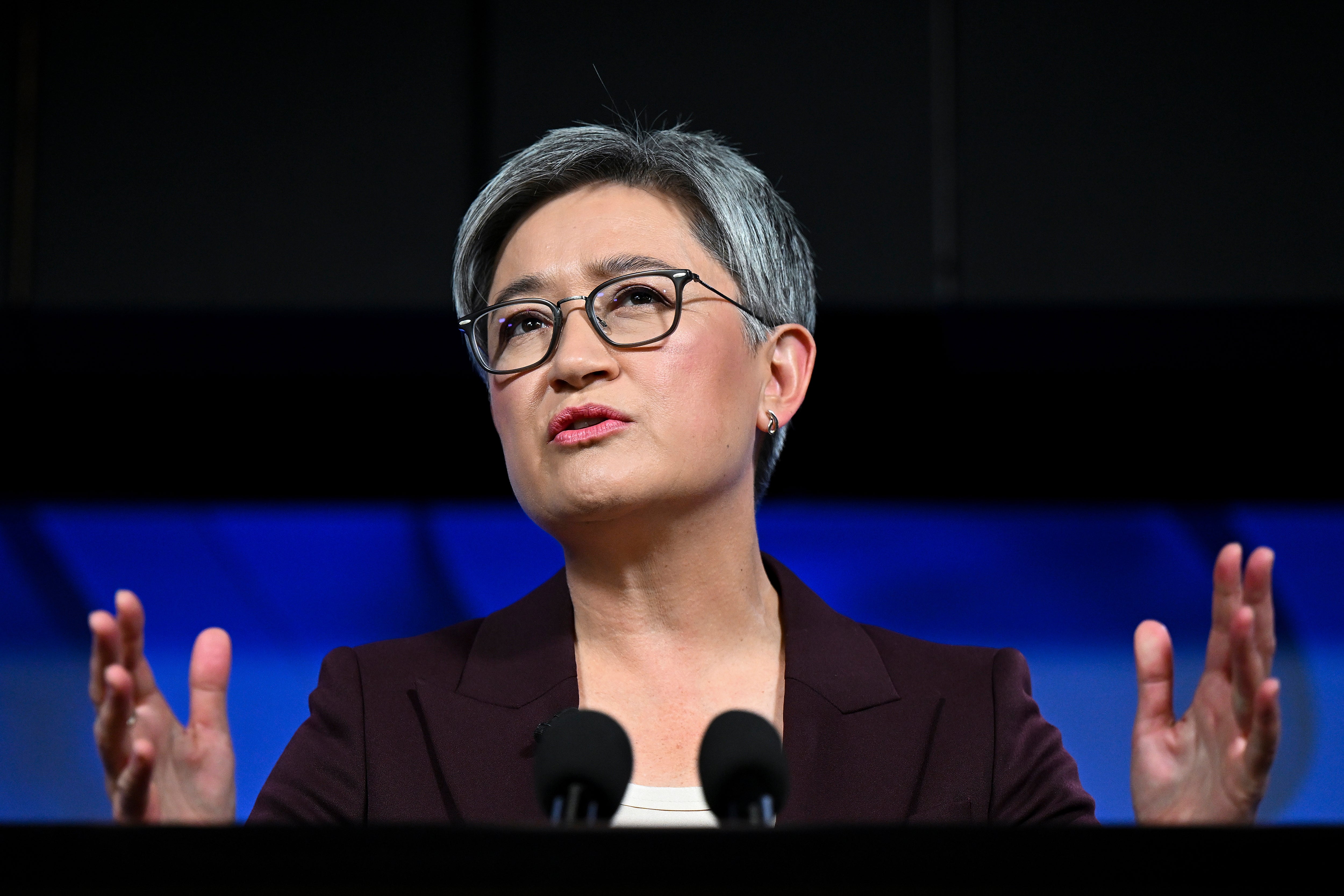Australia says Chinese relations won't improve to past highs
Australian Foreign Minister Penny Wong says her country is working to stabilize relations with China but can't return to the thriving economic relationship with its biggest trading partner that existed 15 years ago

Your support helps us to tell the story
From reproductive rights to climate change to Big Tech, The Independent is on the ground when the story is developing. Whether it's investigating the financials of Elon Musk's pro-Trump PAC or producing our latest documentary, 'The A Word', which shines a light on the American women fighting for reproductive rights, we know how important it is to parse out the facts from the messaging.
At such a critical moment in US history, we need reporters on the ground. Your donation allows us to keep sending journalists to speak to both sides of the story.
The Independent is trusted by Americans across the entire political spectrum. And unlike many other quality news outlets, we choose not to lock Americans out of our reporting and analysis with paywalls. We believe quality journalism should be available to everyone, paid for by those who can afford it.
Your support makes all the difference.Australia is working to stabilize relations with China but could not return to the thriving economic relationship with its biggest trading partner that existed 15 years ago, Australian Foreign Minister Penny Wong said on Monday.
Icy bilateral relations that deteriorated during the previous conservative Australian government’s nine years in power have shown signs of improvement since Wong’s center-left Labor Party was elected almost a year ago. Minister-to-minister meetings have resumed, China has recently lifted restrictions on Australian coal imports and Australia hopes a 3-year-old tariff barrier on Australian barley will be lifted within months.
But Wong said that trade relations could not return to the level when conservative Prime Minister John was in power from 1996 until 2007. Trade was then separated from political and strategic priorities.
“I have been very clear that we seek to stabilize the relationship,” Wong told the National Press Club. “I think both countries know we are not going to go back to where we were 15 years ago.”
During Howard’s era, “you could have your strategic relationship with the United States and the economic relationship with China and the worlds stayed separate -- we don’t live in that sort of world anymore,” Wong said.
China has imposed a series of official and unofficial trade barriers to Australian exports in recent years, particularly since the previous government angered Beijing by calling for an independent investigation into the causes of and responses to the COVID-19 pandemic.
While Australian businesses and state leaders were impatient for Chinese barriers to be lifted for exports including wine, wood and seafood, Wong described diversifying to other markets as “a smart thing to do.”
“Even with increased diversification, China will remain Australia’s largest trading partner for the foreseeable future, and a valued source of foreign investment, where it meets our national interests,” she said.
Australia has blocked the sale of assets including critical infrastructure to Chinese companies on national security grounds in recent years.
Wong said Australia was working toward maintaining a predictable, rules-based Asia-Pacific region “where no country dominates and no country is dominated.”
She agreed with U.S. President Joe Biden on the need for “guardrails” – communication channels between the United States and China to minimize the risk of military misunderstanding and miscalculation – as developed during the Cold War by the United States and the former Soviet Union.
“President Biden has made overtures to China toward agreeing guardrails. It is in all the world’s interests that his overtures are met,” Wong said.
“I have said this to my Chinese counterpart and to his predecessor. And I will keep saying it,” she added, referring to Chinese Foreign Minister Qin Gang and the man he replaced in December, Wang Yi.